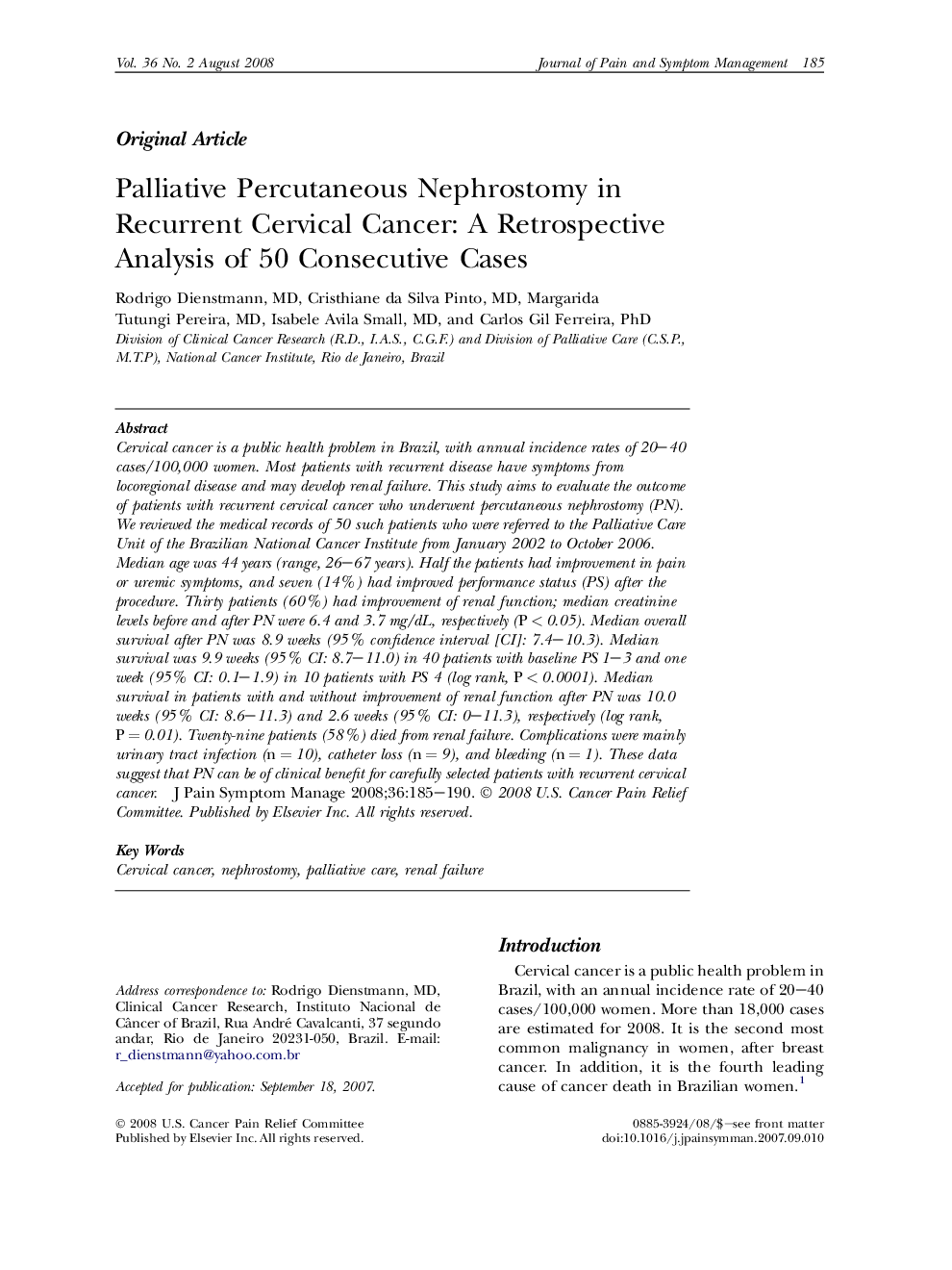| Article ID | Journal | Published Year | Pages | File Type |
|---|---|---|---|---|
| 2736403 | Journal of Pain and Symptom Management | 2008 | 6 Pages |
Cervical cancer is a public health problem in Brazil, with annual incidence rates of 20–40 cases/100,000 women. Most patients with recurrent disease have symptoms from locoregional disease and may develop renal failure. This study aims to evaluate the outcome of patients with recurrent cervical cancer who underwent percutaneous nephrostomy (PN). We reviewed the medical records of 50 such patients who were referred to the Palliative Care Unit of the Brazilian National Cancer Institute from January 2002 to October 2006. Median age was 44 years (range, 26–67 years). Half the patients had improvement in pain or uremic symptoms, and seven (14%) had improved performance status (PS) after the procedure. Thirty patients (60%) had improvement of renal function; median creatinine levels before and after PN were 6.4 and 3.7 mg/dL, respectively (P < 0.05). Median overall survival after PN was 8.9 weeks (95% confidence interval [CI]: 7.4–10.3). Median survival was 9.9 weeks (95% CI: 8.7–11.0) in 40 patients with baseline PS 1–3 and one week (95% CI: 0.1–1.9) in 10 patients with PS 4 (log rank, P < 0.0001). Median survival in patients with and without improvement of renal function after PN was 10.0 weeks (95% CI: 8.6–11.3) and 2.6 weeks (95% CI: 0–11.3), respectively (log rank, P = 0.01). Twenty-nine patients (58%) died from renal failure. Complications were mainly urinary tract infection (n = 10), catheter loss (n = 9), and bleeding (n = 1). These data suggest that PN can be of clinical benefit for carefully selected patients with recurrent cervical cancer.
